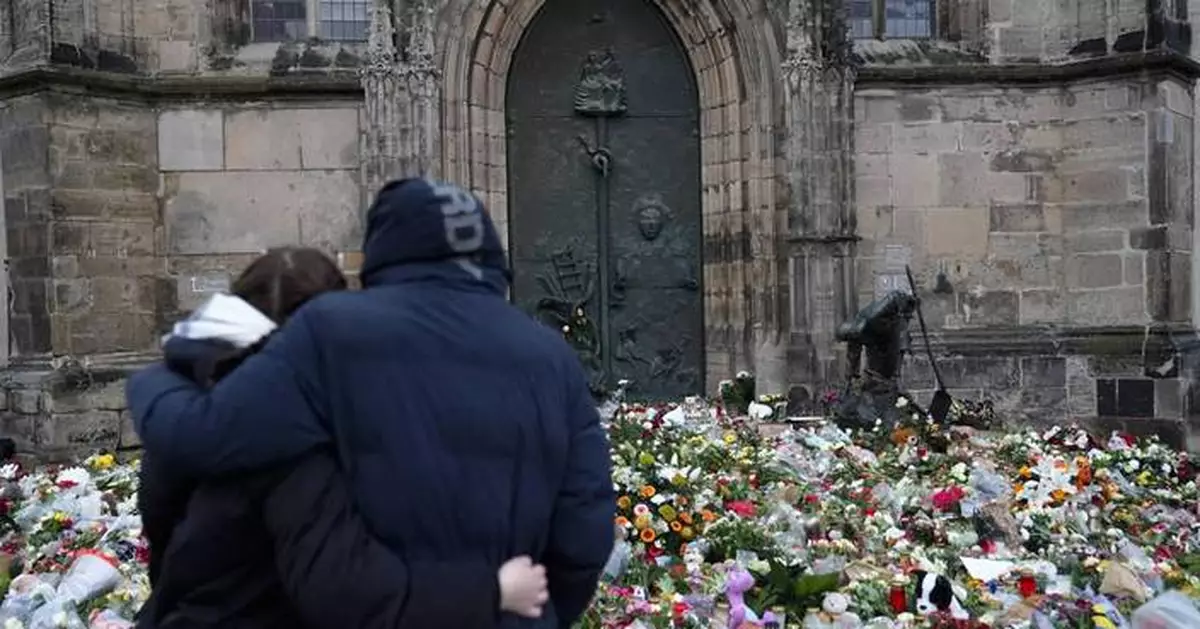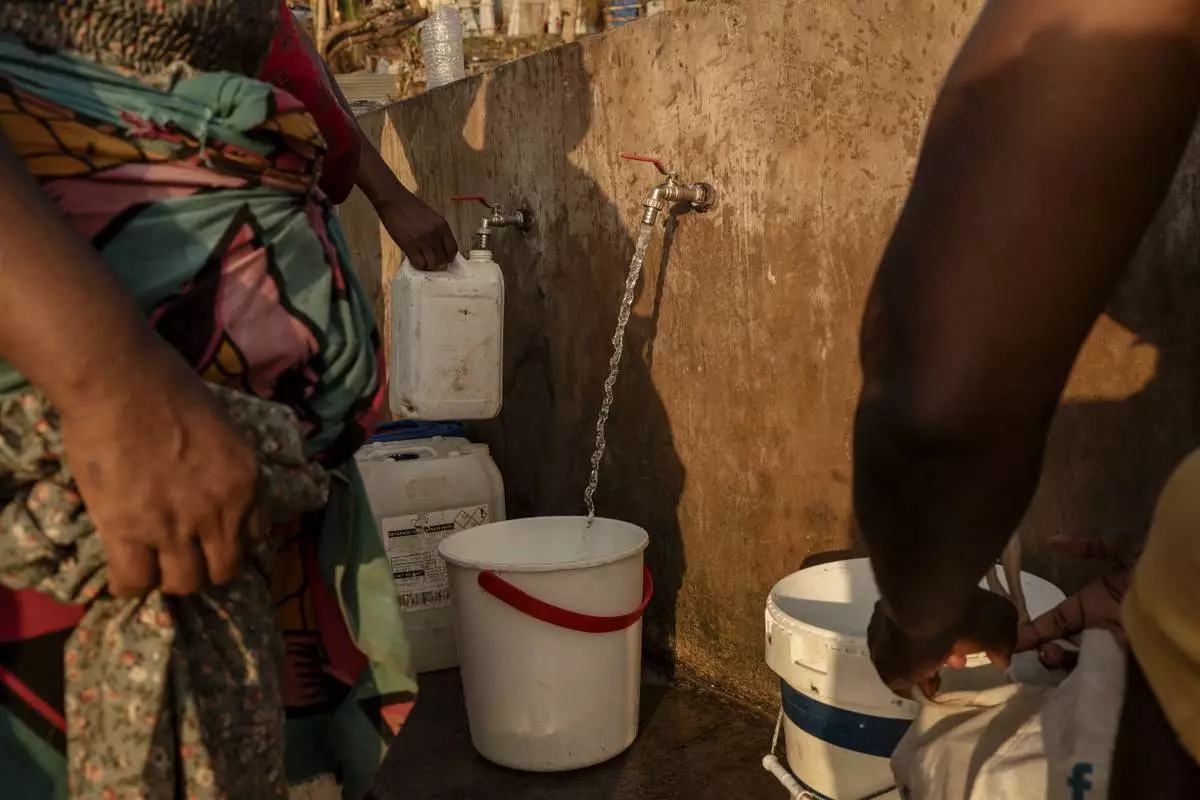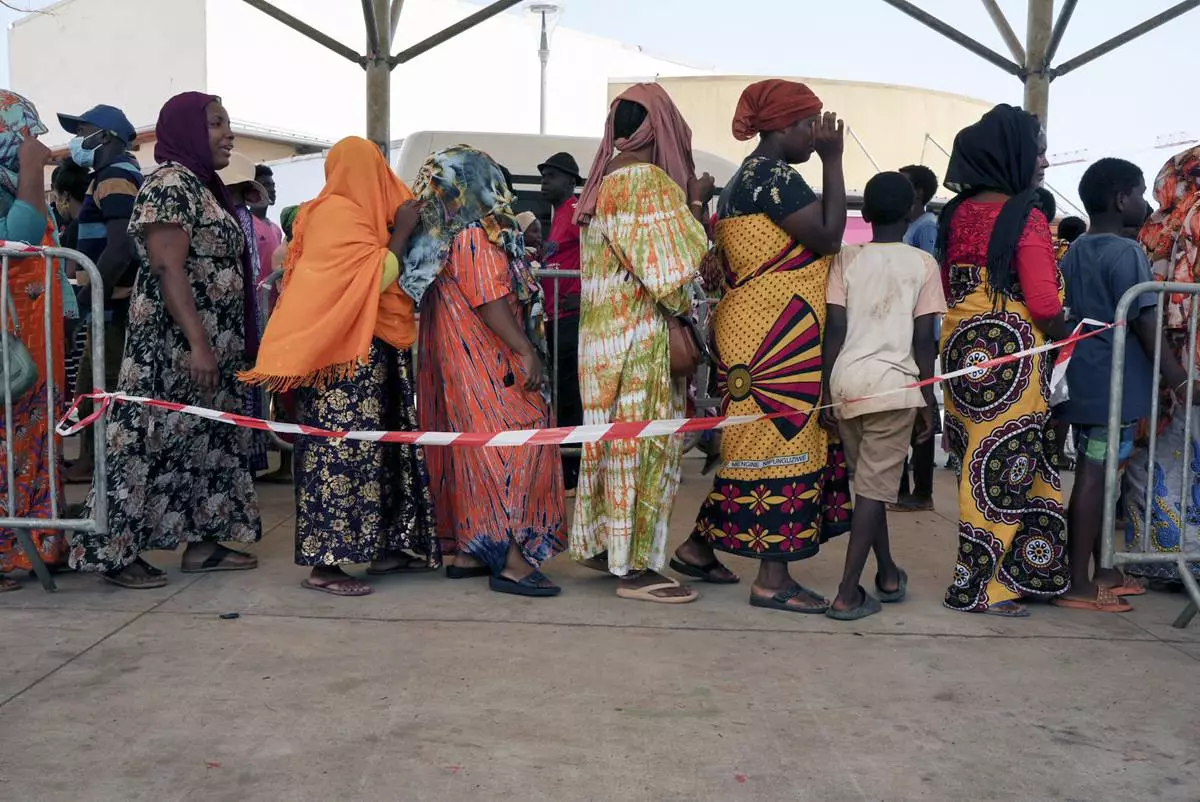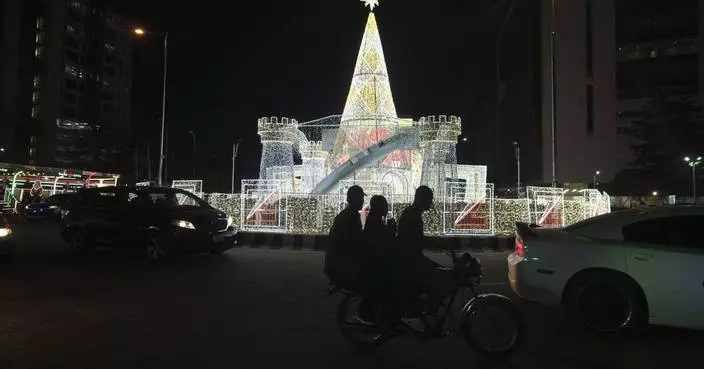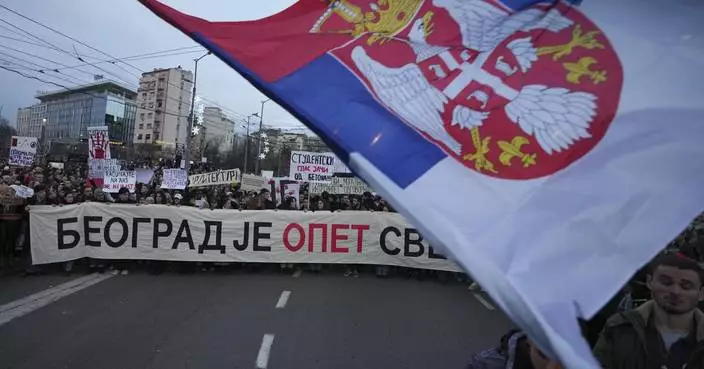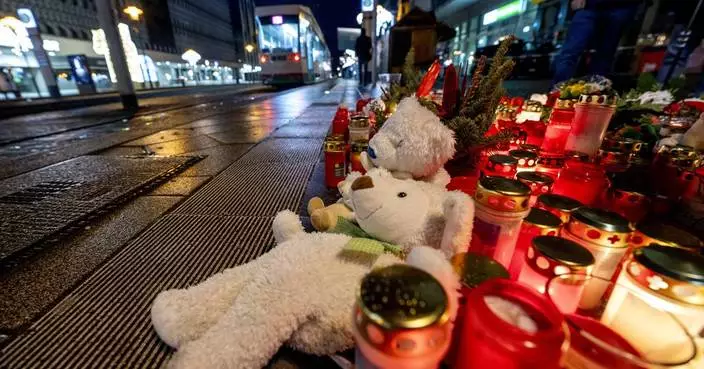MAGDEBURG, Germany (AP) — Four women and a 9-year-old boy were killed and 200 people were injured when a man drove into a Christmas market teeming with holiday shoppers in the German city of Magdeburg — an attack that has left Germans mourning the victims and with a shaken sense of security.
At first, Thi Linh Chi Nguyen thought the loud bangs were fireworks. The 34-year-old manicurist from Vietnam, whose salon is near the Christmas market, was on the phone during a break when she heard the noise just after 7 p.m. on Friday. Then she saw a car drive through the market at high speed. People screamed and a child was thrown into the air by the car.
The woman recalled seeing the car bursting out of the market and turning right onto Ernst-Reuter-Allee street and then coming to a standstill at a tram stop where the suspect was arrested.
The Christmas market was surrounded by concrete barriers designed to prevent attacks, but there was a gap left for emergency access, wide enough for a car to speed through.
The market area reopened Sunday, and residents walked slowly amid the shuttered food, drink and craft stands. Nearby, people stopped to light candles or leave flowers at a growing makeshift memorial.
Police say the dead are four women, aged 45, 52, 67 and 75, and a boy, aged 9. He was named as André Gleissner by fire department officials in the Elm-Asse region west of Magdeburg, where he was a member of the children’s fire brigade.
Authorities said 200 people were injured, including 41 in serious condition. They were being treated in multiple hospitals in Magdeburg, which is about 130 kilometers (80 miles) west of Berlin, and beyond.
Prosecutors said the suspect, a 50-year-old Saudi doctor, is under investigation on suspicion of murder, attempted murder and bodily harm. In a closed-door hearing on Saturday evening, a judge ordered that he be kept in custody pending a possible indictment.
Several German media outlets identified the suspect as Taleb A., withholding his last name in line with privacy laws, and reported that he was a specialist in psychiatry and psychotherapy. He has lived in Germany since 2006, practicing medicine in Bernburg, about 40 kilometers (25 miles) south of Magdeburg.
The suspect's X account describes him as a former Muslim. It is filled with tweets and retweets focusing on anti-Islam themes and criticism of the religion, while sharing congratulatory notes to Muslims who left the faith. He was critical of German authorities, saying they had failed to do enough to combat the “Islamification of Europe.” He has also voiced support for the far-right and anti-immigrant Alternative for Germany (AfD) party.
Investigators are analyzing the suspect's computers, mobile devices and other evidence, trying to understand what motivated him to drive his black BMW into a crowd in the eastern German city. Prosecutors said the motive may have been “dissatisfaction with the treatment of Saudi refugees in Germany.”
Intelligence agencies say that increasingly they are seeing attackers with a confusing mix of beliefs and motivations. The head of Britain’s domestic intelligence agency MI5, Ken McCallum, said in October that “straightforward labels like ‘Islamist terrorism’ or ‘extreme right-wing’ don’t fully reflect the dizzying range of beliefs and ideologies we see.”
There are unanswered questions about what the authorities knew about the suspect. The head of the Federal Criminal Police Office, Holger Münch, said the agency — Germany's equivalent of the FBI — received a warning from Saudi Arabia in November 2023, but that the information was unspecific.
Münch said the suspect “published a huge number of posts on the internet,” was in contact with various authorities and “made insults and even threats” — but was not known to be violent.
Germany’s Federal Office for Migration and Refugees also acknowledged it had received a warning about the suspect last year.
German Chancellor Olaf Scholz is facing criticism about security lapses that allowed the attack to happen, and was heckled by some bystanders during a visit to Magdeburg on Saturday.
The violence shocked all of Germany, prompting several other German towns to cancel their weekend Christmas markets as a precaution, and out of solidarity with Magdeburg’s loss. Berlin kept its markets open but increased the police presence.
Germany has suffered several extremist attacks in recent years, including a knife attack that killed three people and wounded eight at a festival in the western city of Solingen in August. Friday’s attack came eight years after an Islamic extremist drove a truck into a crowded Christmas market in Berlin, killing 13 people and injuring many others.
Those attacks have led cities to beef up security at Christmas markets and other events.
The horror triggered by yet another act of mass violence in Germany makes it likely that migration will remain a key issue as Germans head toward an early election on Feb. 23.
It is the latest in a string of incidents around the world in which vehicles have been used as weapons by jihadi attackers, far-right extremists and others whose motives were unclear.
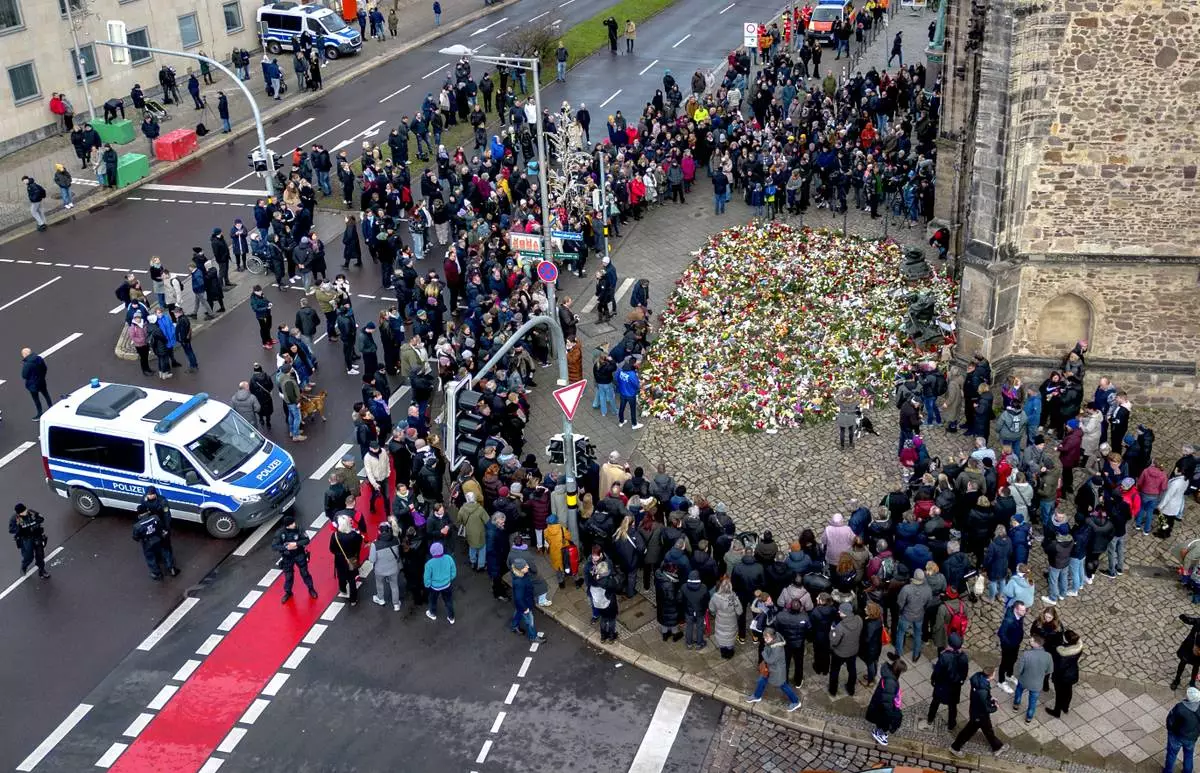
People gather to lay flowers and light candles at the entrance of Johannis church near the Christmas Market, where a car drove into a crowd on Friday evening, in Magdeburg, Germany, Sunday, Dec. 22, 2024. (AP Photo/Michael Probst)
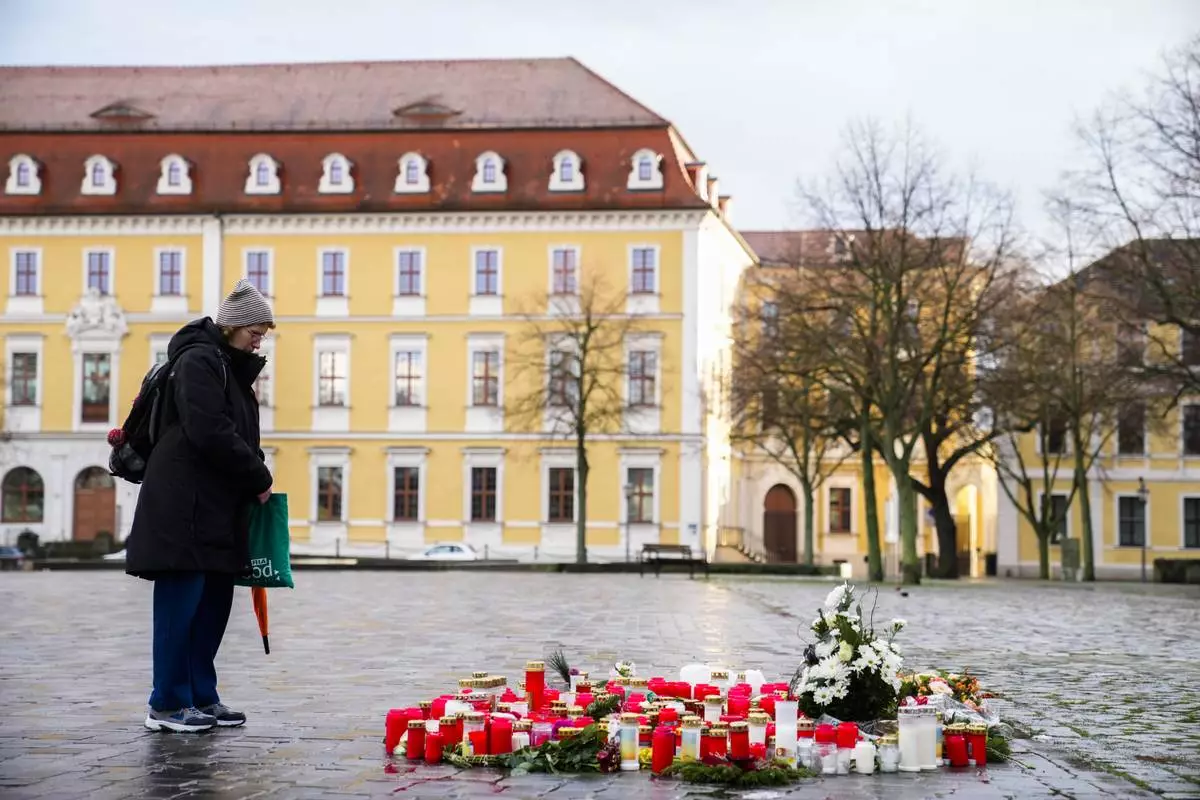
A woman stands next to flowers and candles laid down near the Magdeburg Cathedral, after a car drove into a crowd of a Christmas Mark on Friday evening, in Magdeburg, Germany, Sunday, Dec. 22, 2024. (AP Photo/Ebrahim Noroozi)
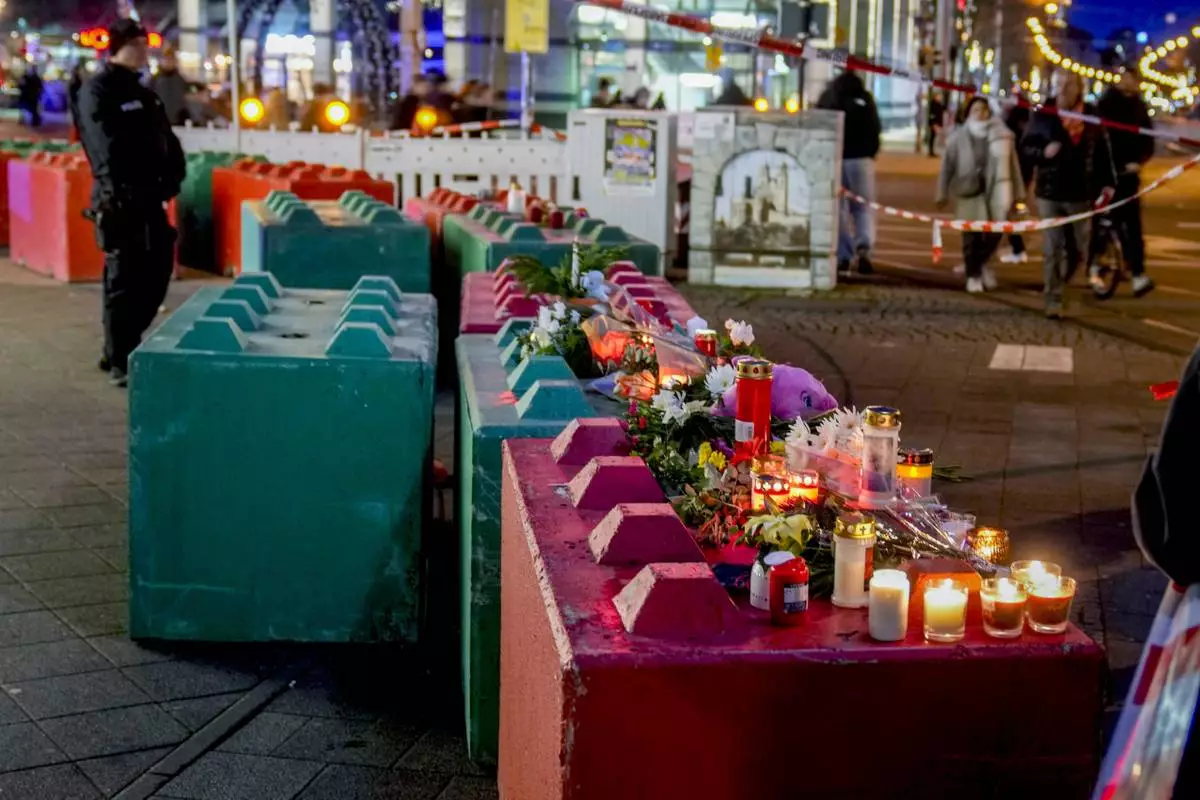
People lay flowers and light candles on concrete blocks that protect the Christmas market, where a car drove into a crowd on Friday evening, in Magdeburg, Germany, Saturday, Dec. 21, 2024. (AP Photo/Michael Probst)
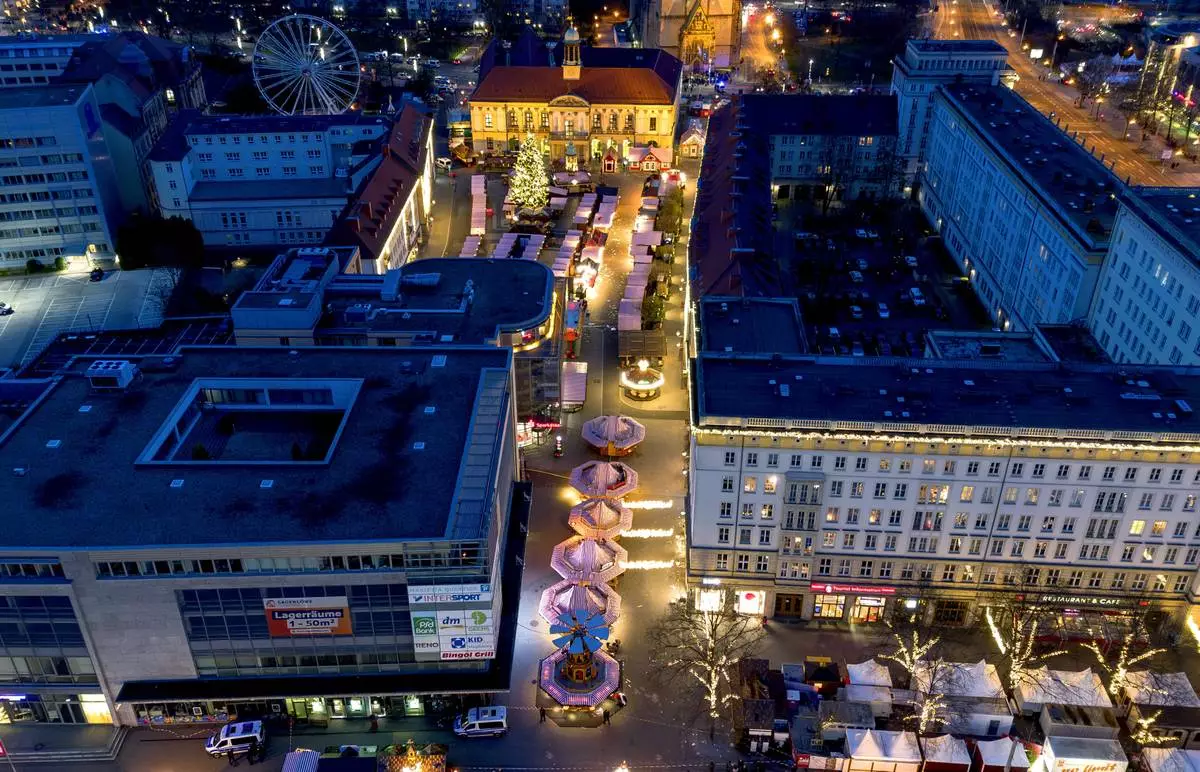
The Christmas market, where a car drove into a crowd on Friday evening, in Magdeburg, Germany, is empty on Saturday evening , Dec. 21, 2024. (AP Photo/Michael Probst)
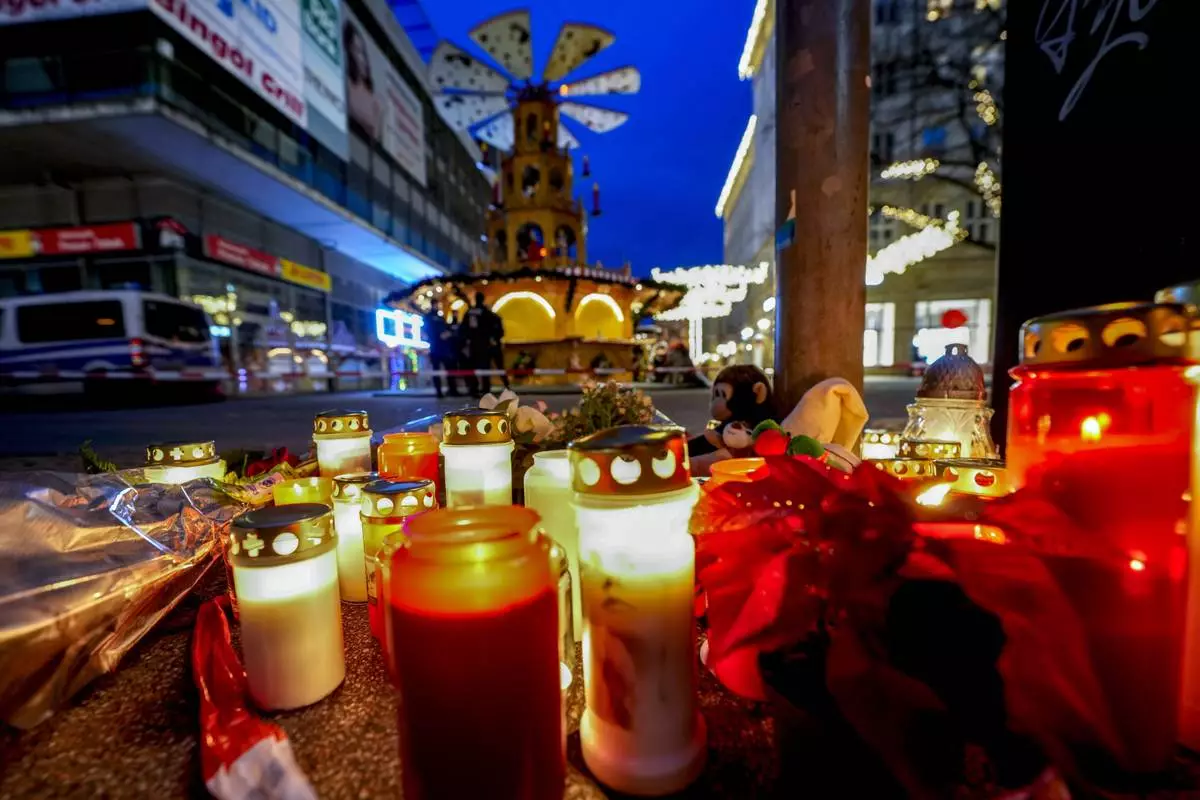
People have lit candles at the Christmas Market in Magdeburg, Germany on Saturday evening , Dec. 21, 2024, where a car drove into a crowd on Friday evening, . (AP Photo/Michael Probst)
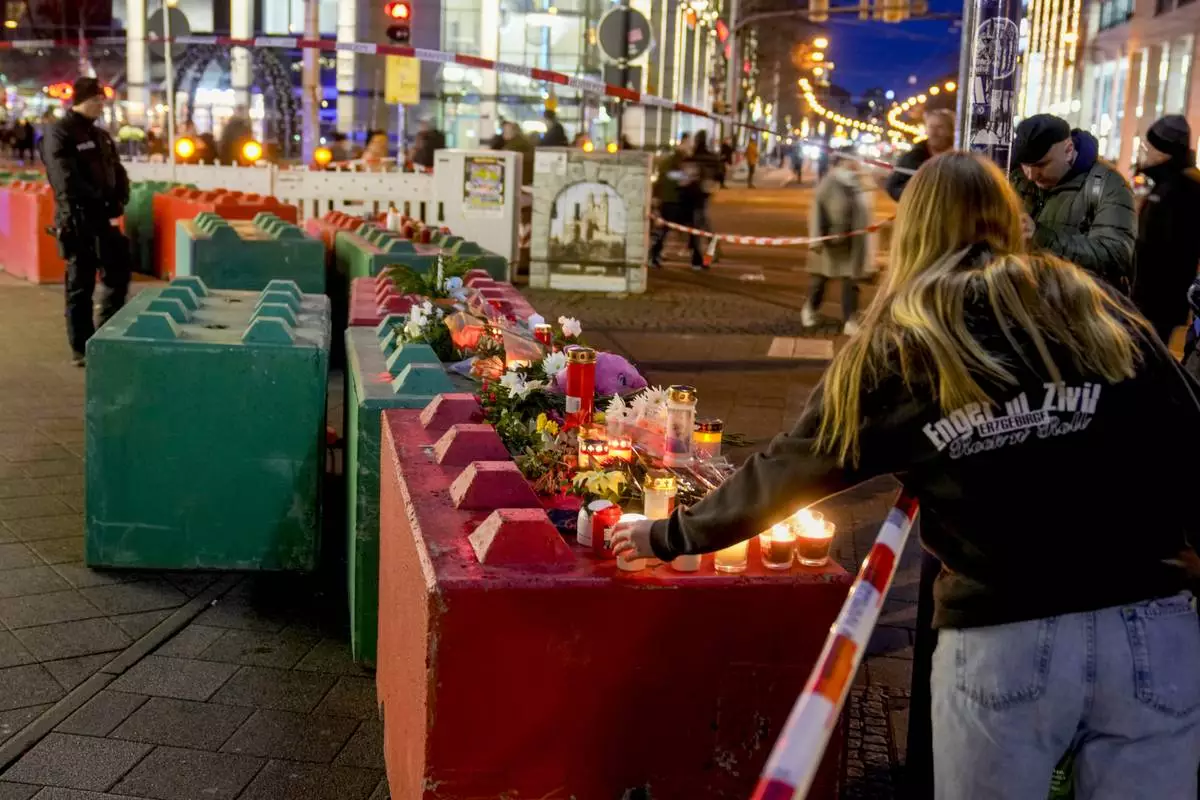
People lay flowers and light candles on concrete blocks that protect the Christmas market in Magdeburg, Germany, Saturday, Dec. 21, 2024, where a car drove into a crowd on Friday evening. (AP Photo/Michael Probst)
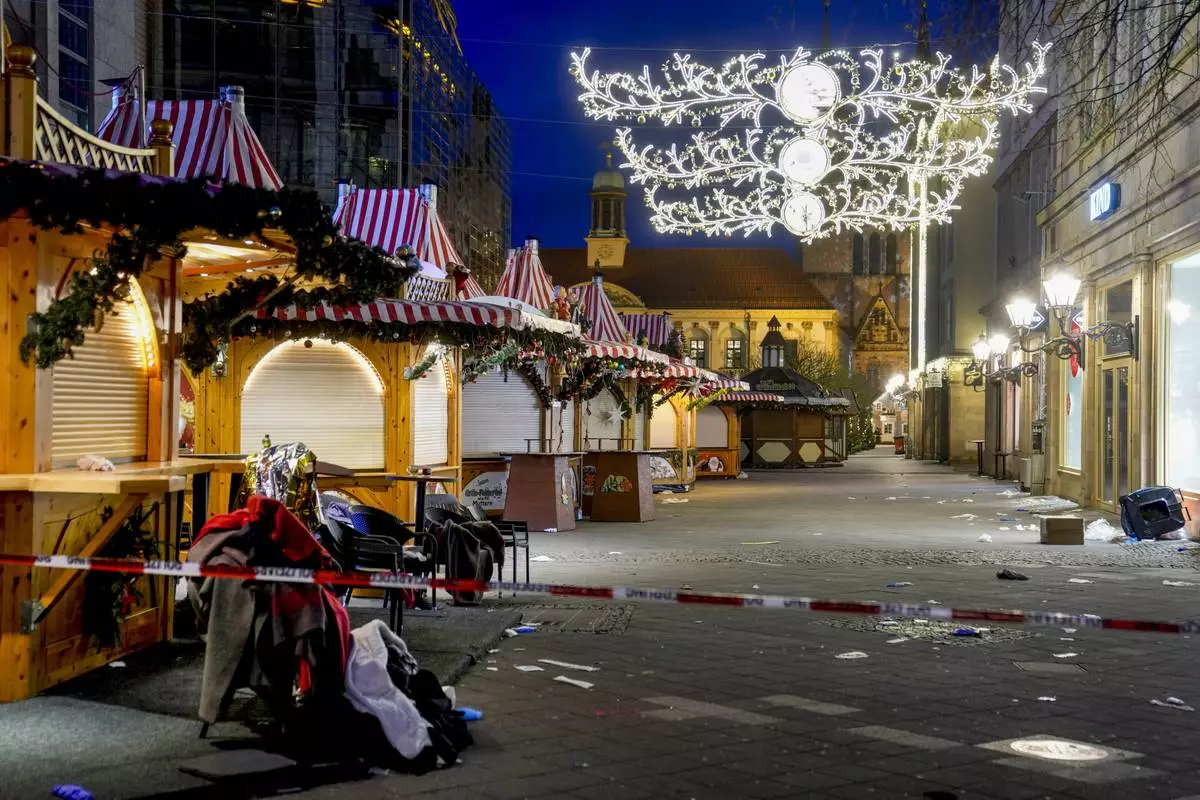
The Christmas market, where a car drove into a crowd on Friday evening, in Magdeburg, Germany, is empty on Saturday evening , Dec. 21, 2024. (AP Photo/Michael Probst)
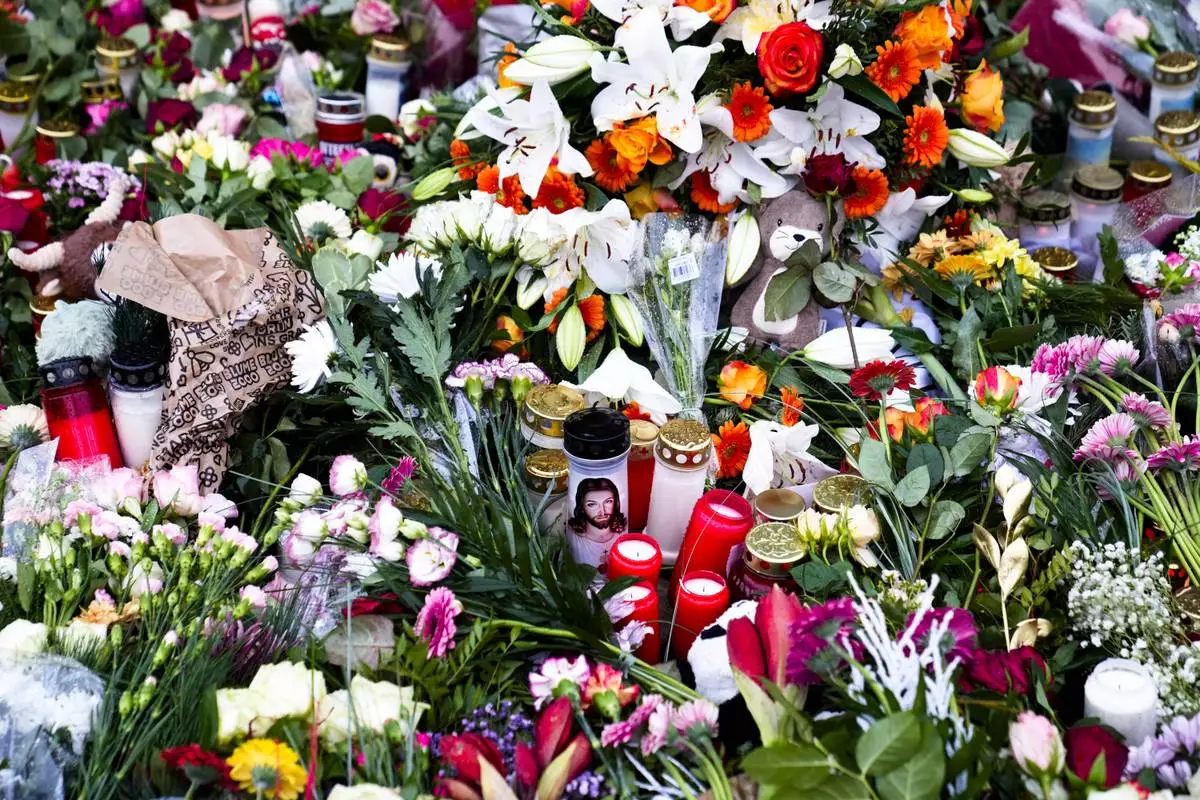
Flowers and candles laid down in front of the Johannis church close to the Christmas market, where a car drove into a crowd on Friday evening, in Magdeburg, Germany, Sunday, Dec. 22, 2024. (AP Photo/Ebrahim Noroozi)
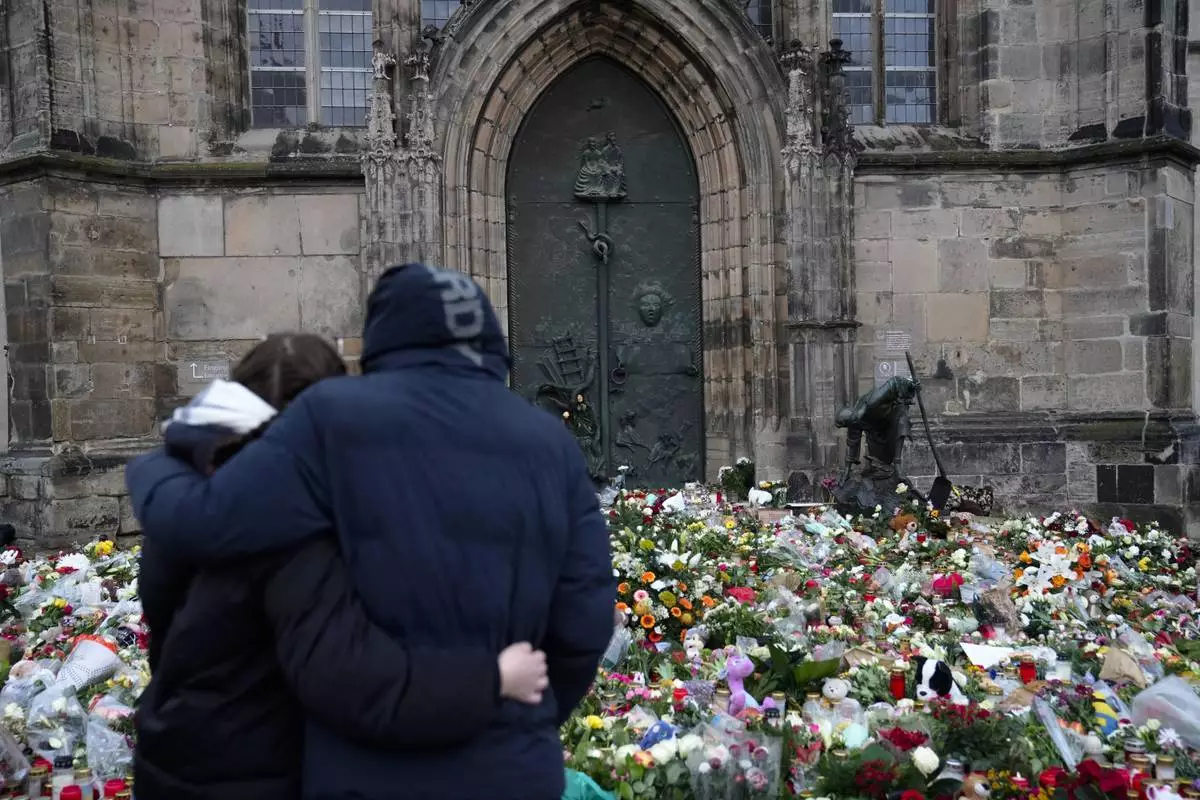
A couple embrace each other in front of flowers and candles laid down at the Johannis church close to the Christmas market, where a car drove into a crowd on Friday evening, in Magdeburg, Germany, Sunday, Dec. 22, 2024. (AP Photo/Ebrahim Noroozi)


